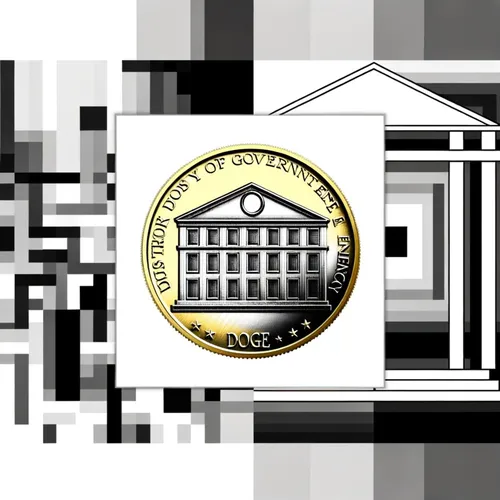Blockchain Revolution: How DOGE Could Redefine Government Efficiency and Digital Transformation in 2025
- Author
- Quiet. Please
- Published
- Thu 10 Apr 2025
- Episode Link
- https://www.spreaker.com/episode/blockchain-revolution-how-doge-could-redefine-government-efficiency-and-digital-transformation-in-2025--65530060
Governments worldwide are under pressure to modernize operations, enhance transparency, and eliminate inefficiencies in spending. The U.S. Department of Government Efficiency (DOGE), established in January 2025 by President Trump and led by Elon Musk, aims to tackle these challenges by leveraging innovative technologies like blockchain. However, the curious overlap in name with Dogecoin, a cryptocurrency championed by Musk himself, has fueled some speculative humor among the public. While Musk has dismissed any connection between DOGE and Dogecoin, the department's goals raise significant questions about the role of emerging technologies in government.
Blockchain is being heralded as a potential game-changer for public sector operations. Platforms like Stellar are already demonstrating scalable solutions for making government bulk payments faster, more transparent, and cost-effective. For instance, tax refunds, social welfare benefits, and disaster relief payments could be streamlined through blockchain, ensuring accuracy and eliminating fraud. Globally, initiatives like blockchain-based vehicle registries and secure voting systems illustrate the transformative impacts on governance.
Yet, DOGE’s ambitions extend beyond digital ledgers. A centerpiece of the Trump administration’s broader crypto strategy, articulated in recent executive orders, includes the establishment of a Strategic Bitcoin Reserve and a U.S. Digital Asset Stockpile. These measures aim to consolidate seized cryptocurrencies and position the U.S. as a leader in digital asset management. Experts argue that such a reserve could stabilize crypto markets while ensuring economic resilience during geopolitical uncertainties.
The open question remains: Is blockchain truly the "Dogecoin of bureaucracy"—a symbol of efficiency and technological playfulness—or a deeper solution to systemic challenges? Proponents argue that blockchain’s transparency and decentralized nature make it a natural fit for government functions plagued by waste and inefficiency. Critics, however, caution against overhyping the technology, pointing to hurdles like implementation costs, policy gaps, and privacy issues.
As DOGE pushes ahead with bold reforms, its success might define whether blockchain becomes a cornerstone of 21st-century governance or just another over-promised innovation. For governments, the stakes are high: achieving lasting efficiency gains could transform public administration, but only if technological adoption is balanced with strategic oversight and regulatory clarity.
